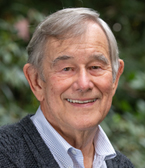By design, randomized field trials (RFTs) avoid many of the problems that plague observational studies, foremost among them being the introduction of selection biases. In practice, however, RFTs regularly confront other difficulties, such as chance differences between treatment and control groups and attrition from the study. To address these issues, baseline data on the variable of primary interest are essential. Theory also aids the analytic process, identifying ways in which data should be disaggregated and determining the generalizability of the findings uncovered. Theory and testing are not neatly divided enterprises. Theory informs the initial design whereas empirical findings from RFTs motivate analysts to update and occasionally abandon their theoretical priors.
Paul E. Peterson
Henry Lee Shattuck Professor of Government, Harvard University
Director, Program on Education Policy and Governance
Senior Editor, Education Next
Senior Fellow, Hoover Institution
Henry Lee Shattuck Professor of Government, Harvard University
Director, Program on Education Policy and Governance
Senior Editor, Education Next
Senior Fellow, Hoover Institution
